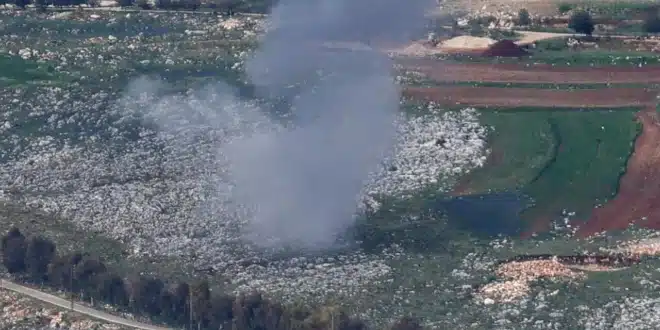Israel carried out its most intense series of airstrikes on Lebanon in nearly four months, targeting several sites in southern Lebanon. The strikes followed the launch of rockets from Lebanese territory into Israel—marking the first such incident since a ceasefire was established in November.
The Israeli military claimed it had hit multiple Hezbollah positions, including rocket launch sites and a command center. In response, Lebanon’s Health Ministry confirmed that the airstrikes resulted in the deaths of two people, including a child, and injured eight others in the affected areas.
Although Hezbollah denied launching the rockets, the Israeli army maintained that it held the Lebanese government accountable for any attacks originating from its territory. The Lebanese military reported dismantling three makeshift rocket launchers and said an investigation into the rocket fire was underway.
Ceasefire Strains and Regional Implications
The recent escalation follows Israel’s renewed military campaign against Hamas in Gaza, a move that has also drawn regional concern due to Hezbollah’s ties with the Palestinian militant group. This latest violence is the most serious since the US and France brokered a ceasefire to end over a year of hostilities between Israel and Hezbollah.
Under the terms of that agreement, the Lebanese army was supposed to increase its deployment in southern Lebanon to prevent armed groups from engaging Israel. Hezbollah was expected to pull back and disarm from southern areas, while Israel was to withdraw from positions it had seized during the conflict.
However, Israeli airstrikes on Hezbollah targets have continued almost daily. Israel argues these operations are necessary to prevent Hezbollah from rebuilding its military capabilities. Currently, Israeli forces remain stationed in five positions inside Lebanese territory. Beirut views this as a violation of sovereignty and a breach of the ceasefire terms. Israel counters that the Lebanese army has not yet fully deployed to those areas, and their presence is needed to secure its northern communities.
Domestic and International Reaction
The rocket incident and subsequent Israeli response have intensified pressure on Lebanon’s government. Prime Minister Nawaf Salam warned that the renewed violence could draw the country into a wider conflict. President Joseph Aoun echoed the concerns, condemning efforts to drag Lebanon into another war and reiterating that only the state should control arms—a message seen as a pointed reference to Hezbollah.
The United Nations Interim Force in Lebanon (UNIFIL) expressed serious concern over the situation and called on both sides to adhere to their ceasefire obligations, warning of the broader risks posed by escalation.
Hezbollah, heavily weakened by last year’s conflict, is dealing with significant internal and external challenges. Many of its fighters and leaders were killed, its weapons stockpiles were significantly reduced, and the group now faces growing pressure from political opponents to disarm.
International donors have also signaled that financial assistance to Lebanon will depend on the government taking clear steps to curb Hezbollah’s power. The group initially joined the conflict in solidarity with Hamas after the October 7, 2023, attacks on southern Israel.
The war led to widespread devastation in Lebanon, with approximately 4,000 people killed—many of them civilians—and over 1.2 million people displaced. Israel has stated that one of its primary objectives was to remove Hezbollah from its northern border regions and ensure the safe return of the 60,000 Israeli citizens who had to evacuate due to Hezbollah attacks.


